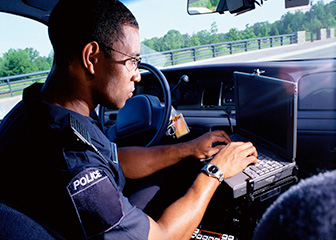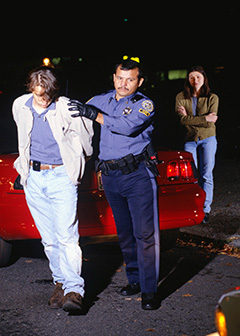How to Become a Police Officer or Detective About this section

Police and detectives must use good judgment and have strong communication skills when gathering facts about a crime.
Education requirements range from a high school diploma to a college or higher degree. Most police and detectives must graduate from their agency’s training academy before completing a period of on-the-job training. Candidates must be U.S. citizens, usually at least 21 years old, and meet rigorous physical and personal qualifications.
Important Qualities
Ability to multi-task. Officers and detectives may find that the demands of their job vary from day to day. But multiple tasks and extensive paperwork must be completed on time.
Communication skills. Police and detectives must be able to speak with people when gathering facts about a crime and to then express details about a given incident in writing.
Empathetic personality. Police officers need to understand the perspectives of a wide variety of people in their jurisdiction and have a willingness to help the public.
Good judgment. Police and detectives must be able to determine the best way to solve a wide array of problems quickly.
Leadership skills. Police officers must be comfortable with being a highly visible member of their community, as the public looks to them for assistance in emergency situations.
Perceptiveness. Officers must be able to anticipate another person’s reactions and understand why people act a certain way.
Strength and stamina. Officers and detectives must be in good physical shape both to pass required tests for entry into the field and to keep up with the daily rigors of the job.
Education and Training
Police and detective applicants usually must have at least a high school education or GED and be a graduate of their agency’s training academy. Many agencies require some college coursework or a college degree. Knowledge of a foreign language is an asset in many federal agencies and urban departments.
Candidates must be U.S. citizens, must usually be at least 21 years old, have a driver’s license, and must meet specific physical qualifications. Applicants may have to pass physical exams of vision, hearing, strength, and agility as well as competitive written exams. Previous work or military experience is often seen as a plus. Candidates typically go through a series of interviews and may be asked to take lie detector and drug tests. A felony conviction may disqualify a candidate.
Applicants usually have recruit training before becoming an officer. In state and large local police departments, recruits get training in their agency's police academy. In small agencies, recruits often attend a regional or state academy. Training includes classroom instruction in constitutional law, civil rights, state laws and local ordinances, and police ethics. Recruits also receive training and supervised experience in areas such as patrol, traffic control, use of firearms, self-defense, first aid, and emergency response.
Some police departments have cadet programs for people interested in a career in law enforcement who do not yet meet age requirements for becoming an officer. These cadets do clerical work and attend classes until they reach the minimum age requirement and can apply for a position with the regular force.
Detectives normally begin their career as police officers before being promoted to detective.
State and local agencies encourage applicants to continue their education after high school by taking courses or training related to law enforcement. Many applicants for entry-level police jobs have taken some college classes, and a significant number are college graduates. Many junior colleges, colleges, and universities offer programs in law enforcement or criminal justice. Many agencies offer financial assistance to officers who pursue these or related degrees.
Fish and game wardens also must meet specific requirements; however, these vary. Candidates applying for federal jobs with the U.S. Fish and Wildlife Service typically need a college degree and those applying to work for state departments often need a high school diploma or some college study in a related field such as biology or natural resources management. Military or police experience may be considered an advantage. Once hired, fish and game wardens attend a training academy and sometimes get additional training in the field.
Although similar to state and local requirements, the requirements for federal law enforcement agencies, such as with the FBI or Secret Service, are generally stricter. Federal agencies require a bachelor's degree, related work experience, or a combination of the two. For example, FBI special agent applicants typically must be college graduates with at least 3 years of professional work experience. There are lie detector tests as well as interviews with references. Jobs that require security clearances have additional requirements.
Federal law enforcement agents undergo extensive training, usually at the U.S. Marine Corps base in Quantico, Virginia, or the Federal Law Enforcement Training Center in Glynco, Georgia. Furthermore, some federal positions have a maximum age for applicants. The specific educational requirements, qualifications, and training information for a particular federal agency are available on its website. (See the Contacts for More Info section for links to various federal agencies.)
Advancement
Police officers usually become eligible for promotion after a probationary period. Promotions to corporal, sergeant, lieutenant, and captain usually are made according to a candidate's position on a promotion list, as determined by scores on a written examination and on-the-job performance. In large departments, promotion may enable an officer to become a detective or to specialize in one type of police work, such as working with juveniles.
Federal agents often are on the General Services (GS) pay scale. Most begin at the GS-5 or GS-7 level. As agents meet time-in-grade and knowledge and skills requirements, they move up the GS scale. Jobs at and above GS-13 are often managerial positions. Many agencies hire internally for these supervisory positions. A few agents may be able to enter the Senior Executive Service ranks of upper management.










